Valve Controls
Control valves are devices that allow for the control of various parameters, including pressure, temperature, or flow rate. They operate according to certain principles and can be used in any system where such parameters need to be regulated. Control valves work by measuring the pressure or flow on either side of a valve and then regulating these pressures through the use of an actuator or other method. This adjustment can be made manually or automatically depending on the type of valve and its settings. By using different types of control valves, it is possible to fine-tune systems so that they run more efficiently, precisely, and reliably.
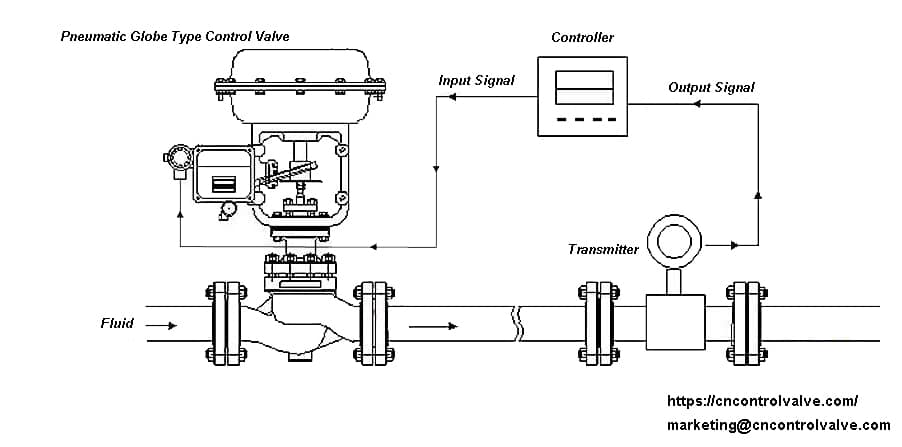
Introduction Valve Controls
Definition of Valves Control
Control valves are components used to regulate the pressure, temperature, and flow rate of various systems. They work by adjusting the pressure or flow on either side of a valve using an actuator or other device in order to fine-tune a system so that it operates more reliably and with greater precision.
Purpose of Valves Control
Control valves are used to maintain a desired pressure, temperature, or flow rate in a system by regulating the amount of fluid that is allowed to pass through the valve. The purpose of using control valves is to provide precise control over system parameters and adjust them as needed. This helps ensure that the system is operating at its optimal level and can also prevent costly damages due to an unexpected surge or drop in pressure or temperature.
Principles of Valves Controls
Control valves are an essential part of many industrial systems, as they regulate the flow of liquids or gases in various pipelines. By understanding the principles behind control valves, one can better understand their application and ensure optimal system performance.
The first principle is that control valves must maintain a desired flow rate by balancing the pressure drop across them. They also adjust the flow rate automatically depending on certain set parameters such as temperature or pressure.
Another important principle is that control valves differ in terms of materials and shape, so they must be selected based on the needs of the specific system in which they will be used.
Lastly, proper maintenance and care should always be taken with control valves to ensure that any issues are identified early and fixed promptly for maximum efficiency. Knowing these principles is key to ensuring an efficient and reliable system.
How does the control valve operate
Control valves are found in many industrial systems and help to regulate the flow of liquids or gases. How control valves operate is determined by their design characteristics, such as port size, trim type, and seat leakage. A control valve’s design determines how quickly it can open or close and the degree of precision with which it can maintain a certain pressure level or flow rate.
When a control valve is installed on a system, it must also be assembled with an actuator that can either be operated manually by hand or from a remote location. The actuator then controls the movement of the valve stem in order to change the position of its disc or plug within the body. This adjusts how much pressure or flow capacity passes through and changes the fluid pressure on downstream of the valve, which will ultimately regulate the flow rate. These intricate processes all come together to accurately adjust and control fluid flow within a system using control valves.
Types of Valves Control
Control valves can be divided into two main types: proportional control valves and on/off control valves. Proportional control valves use an actuator to open or close the valve, allowing for finer control of system parameters like pressure, temperature, and flow rate. On/Off control valves are used to completely shut off a system, allowing it to be operated in a safe and efficient method. Other types of control valves include safety relief valves, check valves, and butterfly valves.
Level Control Valves
The Level Control Valve is a versatile and reliable device designed to help you control the levels of liquids or gases within a system. It features adjustable parameters that enable it to respond quickly to changes in pressure, temperature, and flow rate, allowing you to maintain fluid levels accurately. This valve also has an integrated level controller for precise control over predetermined settings. With its robust construction and easy installation process, this high-performing valve offers superior performance and efficiency. THINKTANK is a professional manufacturer of level control valves. You can get a free consultation for level control valves today and get maximum control over your system’s fluid levels.
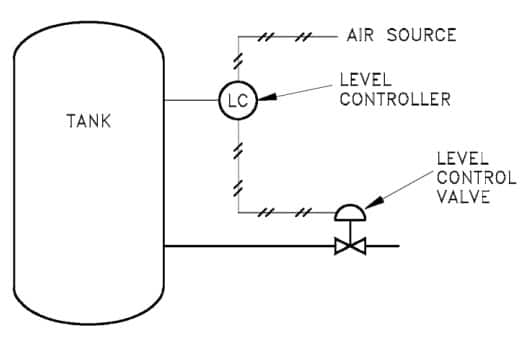
Shut-off Control Valves
Shut-off valves are an essential component of any industrial operation. These devices are designed to quickly and reliably shut off the flow of liquids or gases in the event of an emergency. Shut-off valves come in a variety of materials, shapes, and sizes, so it is important to choose the right type for your application. Shut-off valves must be installed properly and regularly maintained to ensure their performance and reliability.
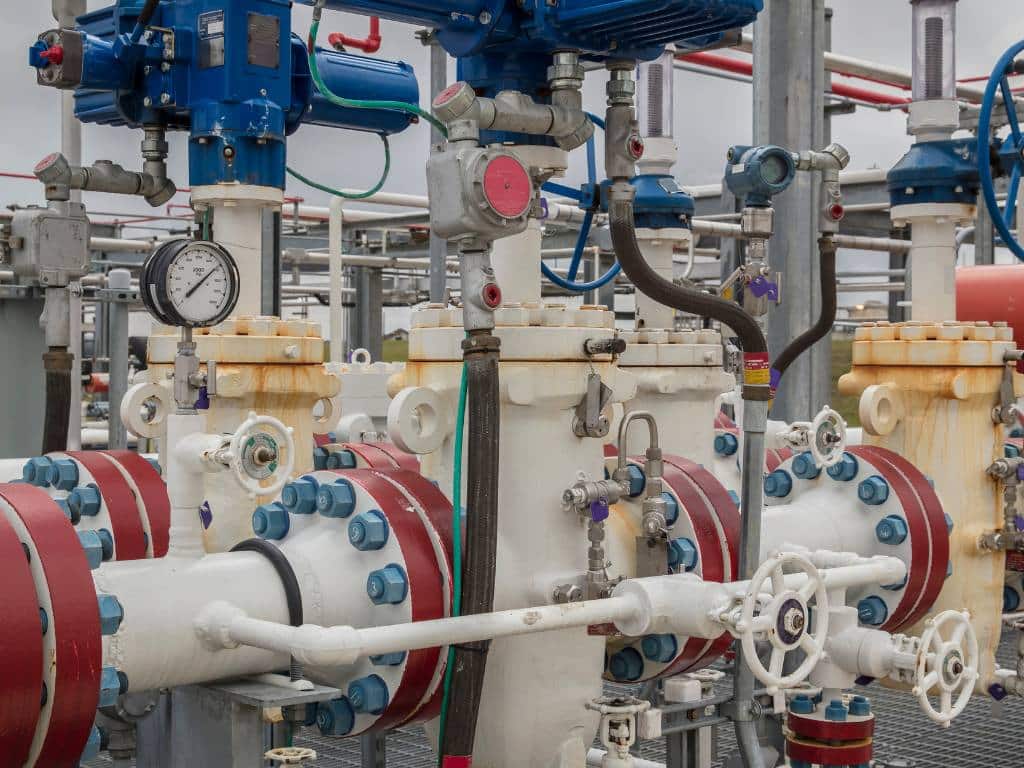
Throttling Valves
Throttling valves are a type of valve used in many industrial applications to control flow rate and pressure. They work by restricting the size of the opening through which the fluid or gas flows, creating an obstruction that results in a decreased flow. Throttling valves can also be used to buffer shocks and vibrations, allowing for smooth operation. They come in various sizes and materials, providing a customizable solution depending on the specific needs of the application.
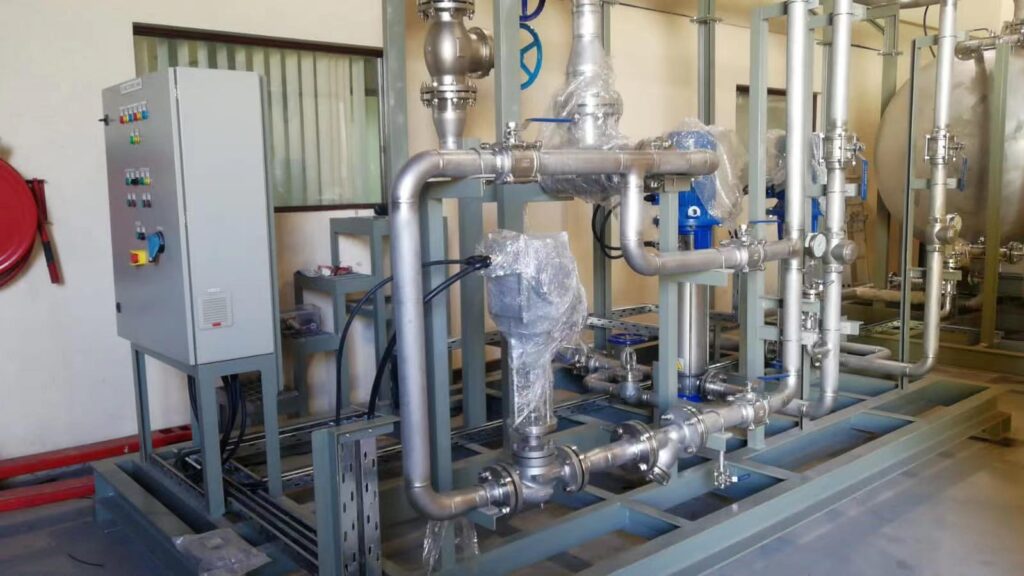
safety relief valves
Safety relief valves are a type of valve used to control pressure in industrial applications. They are designed to automatically open when the process pressure exceeds the safety set point, allowing pressure to be safely released from the system. Safety relief valves are designed to open quickly and fully and can also be used in emergency shutdown scenarios. Careful consideration should be given when selecting a safety relief valve, ensuring that it is properly sized for the application and that all safety considerations have been addressed.
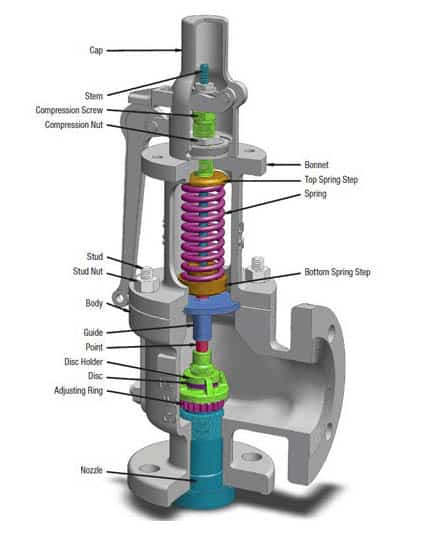
check valves
Check valves are a type of valve designed to control the flow of liquids or gases. They feature a one-way valve, allowing fluid to flow in one direction and blocking it from flowing in the opposite direction. Check valves to prevent backflow, ensuring that process equipment runs safely and effectively. They come in many different sizes and materials, so you must choose the right check valve for your operation. Additionally, regular maintenance is important to ensure that check valves are functioning properly.
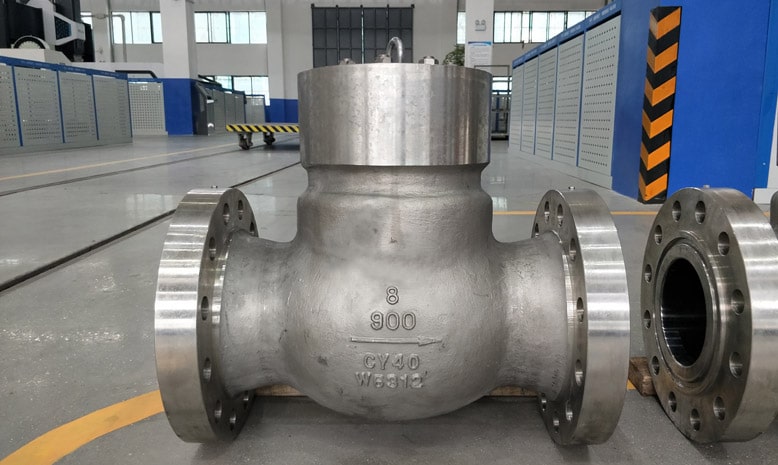
butterfly valves
Butterfly valves are a type of valve that controls the flow of liquid or gas through a rotating disc. The disc is usually made of rubber and connected to a stem, which can be turned to regulate the flow. Butterfly valves offer quick shut-off and long reliable service life with minimal maintenance required. They come in many different sizes and materials, making them an excellent choice for a wide range of industries and applications. Additionally, they are relatively low cost compared to other valve types, making them a great value for money.
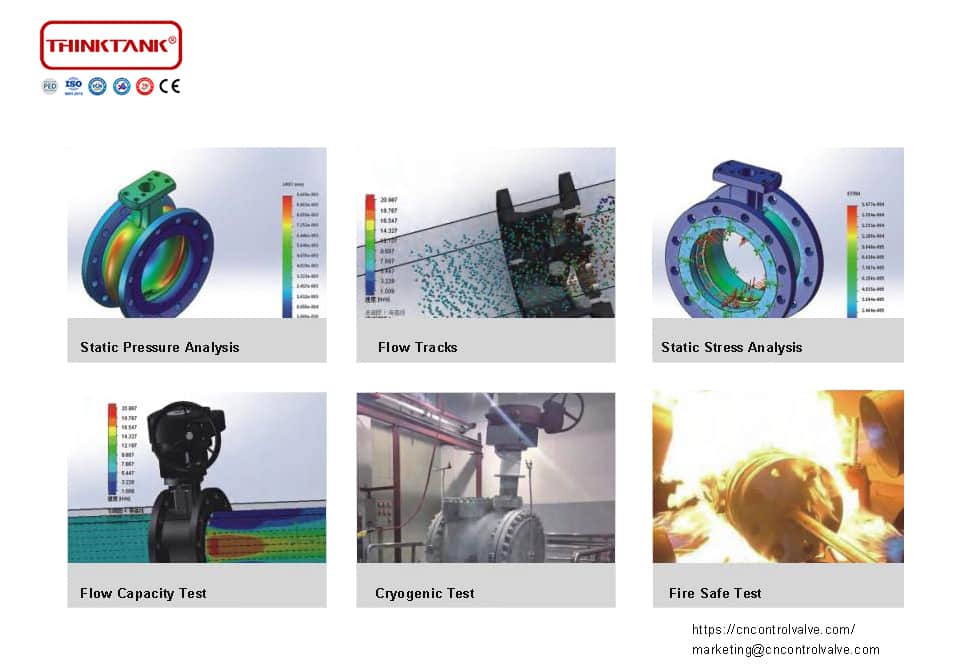
Maintenance and Care for Control Valves
When it comes to maintaining control valves, there are a few steps you should take in order to ensure that they’re operating correctly and lasting for years to come.
First, inspect the valve regularly for any issues such as leaks or obstructions in its vent line. Second, lubricate the valve according to its type and manufacturer’s instructions.
Third, make sure all connections are securely tightened.
Lastly, check for any wear and tear on parts or seals every so often and replace them if necessary. By following these steps, you can ensure that your control valves will keep running smoothly and effectively over time.
Sizing a Level Control Valve
Level valves come in various sizes and shapes, so it’s important to choose the right one for your application. To determine the correct size valve for your system, you should consider factors such as flow rate, pressure drop across the valve, pipe diameter, and operating temperature. You should also consider the type of medium flowing through the valve.
Finally, it’s important to take into account any special requirements specific to your system. With the right information and careful consideration, you can choose a level valve that provides effective control and reliable performance.
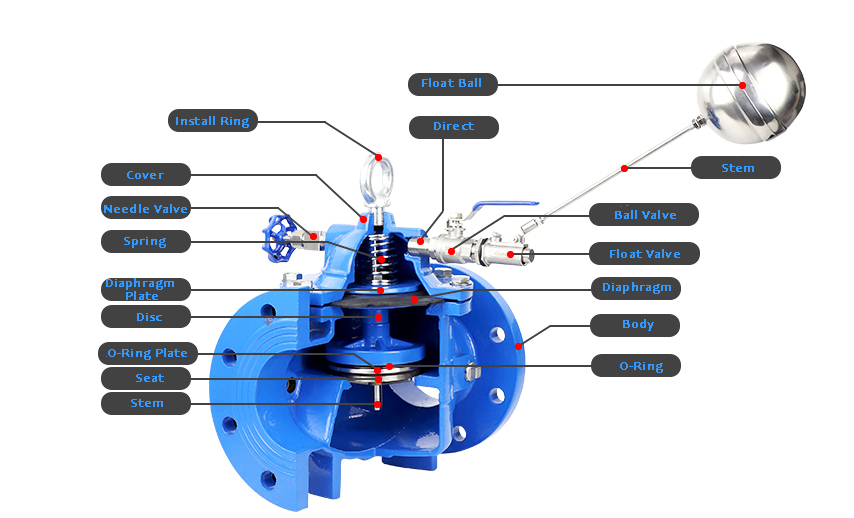
Regular Inspections to Ensure Proper Operation
Regularly inspecting your control valves can help you identify any issues early and address them before they cause any damage. Inspections should be conducted every few months or when changes are made to the system. This includes checking for leaks, corrosion, and loose connections. You should also inspect valves for signs of wear and tear, such as cracks in the body or valve stem, and inspect valves for any obstructions in their vent line. By conducting regular inspections, you can be sure that your valves are operating efficiently and safely.
Pressure Drops for Fluid Level Control
When controlling the level of a fluid, it is important to consider pressure drops. Pressure drops occur when the flow rate of a system decreases, resulting in decreased pressure in the valves. This decrease in pressure can cause valves to open or close prematurely, resulting in an inaccurate control of the fluid’s level. To prevent this from happening, you should install valves with higher pressure ratings or use valves capable of withstanding larger pressure drops.
Conclusion
In conclusion, control valves are a critical element for any industrial operation. They provide precise and reliable control of liquids or gases in a variety of conditions. Understanding the principles of how control valves operate is essential for proper installation and efficient operation. The purchase of high-quality control valves is key to ensuring safety and operational efficiency in your facility. Be Careful When Choosing A New Supplier. The DISAPPOINTMENT of low quality lasts much longer than the Joy of LOW PRICE!
Check the following testimonial to see how people review THINKTANK.
